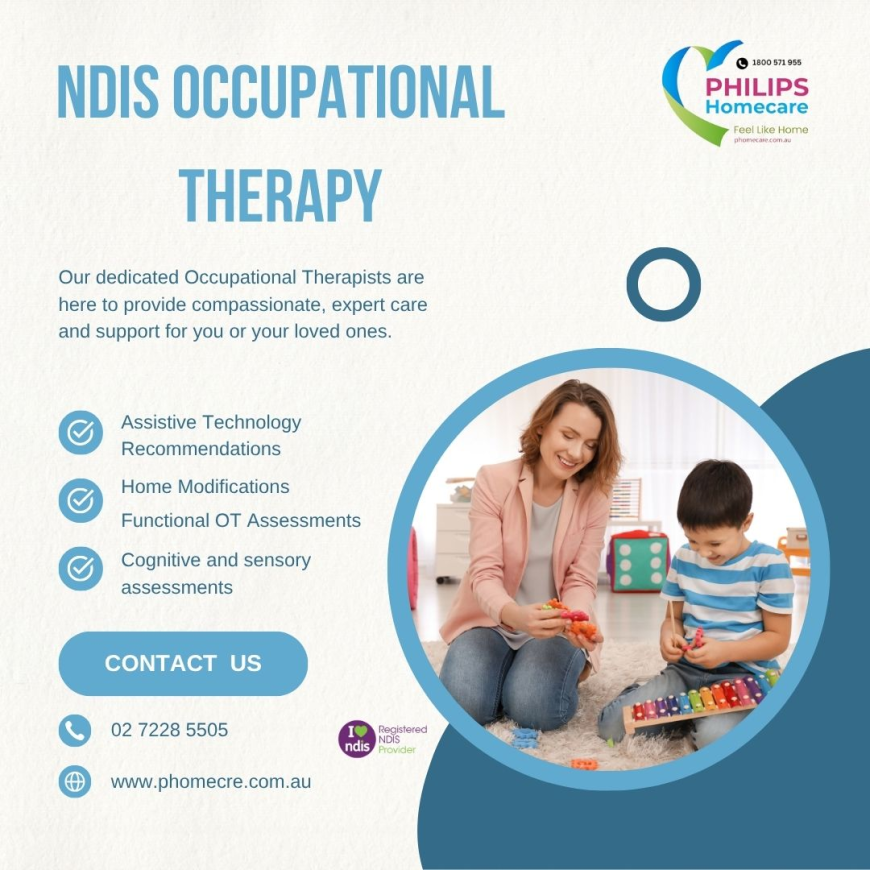NDIS OT Strategies for Better Time Management
ndis occupational therapy

Time management is a crucial skill for individuals living with disabilities, as it significantly influences independence, productivity, and overall well-being. Within the framework of the National Disability Insurance Scheme (NDIS), NDIS occupational therapy plays a pivotal role in equipping participants with strategies to manage their time more effectively. Occupational therapists assess the unique needs of each participant and implement personalised approaches that align with their goals, routines, and capabilities.
Understanding Time Management in NDIS Occupational Therapy
NDIS occupational therapy is designed to help individuals overcome barriers that affect their ability to carry out daily tasks. One common challenge faced by many participants is poor time management, which can impact personal care, work, learning, and social engagement. Through structured interventions, occupational therapists work with participants to identify the root causes of time-related difficulties, whether they stem from cognitive, emotional, physical, or environmental factors.
The process begins with a detailed functional assessment. This allows the therapist to observe how a participant manages their current routine and where time is lost or used inefficiently. From this insight, tailored strategies are developed to improve organisation, concentration, decision-making, and self-regulation — all essential for managing time effectively.
Setting Realistic Goals and Priorities
One core strategy in NDIS occupational therapy for time management is goal-setting. Participants are encouraged to set realistic, achievable goals that are broken down into smaller, manageable tasks. This technique helps reduce the feeling of being overwhelmed and makes it easier to focus on one task at a time.
Prioritising is another essential element. Occupational therapists help participants distinguish between urgent, important, and non-essential tasks. By using tools like priority matrices or task lists, individuals can better allocate their time and energy. This structured approach is particularly useful for people with attention difficulties or executive functioning challenges.
Developing and Using Visual Schedules
Visual scheduling is a widely used tool in NDIS occupational therapy. These schedules use images, colour codes, or symbols to represent activities and time blocks. They are especially effective for individuals with autism, intellectual disabilities, or those who benefit from visual cues. Visual schedules provide predictability and routine, helping participants transition between tasks more smoothly and reducing time lost due to confusion or distraction.
Additionally, timers and alarms can be incorporated to mark the beginning and end of tasks. Time-tracking apps and adaptive devices can also help reinforce awareness of how time is being spent.
Environmental Modifications
The physical environment plays a major role in how well time is managed. NDIS occupational therapy often involves suggesting environmental modifications to enhance focus and reduce time-wasting distractions. This may include organising workspaces, using labelling systems, or decluttering rooms to promote efficiency. Reducing auditory or visual distractions can help participants stay on track with tasks and follow through on routines.
Lighting, noise control, and even furniture positioning can be adjusted to create an optimal environment for productivity. These simple yet impactful changes support better use of time and reduce stress during task completion.
Building Routines and Habits
Habits are powerful tools for time management. Through NDIS occupational therapy, participants learn how to establish consistent daily routines that become second nature. Repetitive behaviours, such as brushing teeth at the same time each day or preparing for bed with the same steps every evening, foster independence and reduce cognitive load.
Therapists may use habit trackers, daily checklists, or positive reinforcement techniques to support habit development. Over time, these routines help participants feel more in control of their day and create a foundation for more complex time management skills.
Conclusion
Effective time management empowers individuals to live more fulfilling, independent lives. Through the tailored support of NDIS occupational therapy, participants gain tools, routines, and confidence to manage their time more effectively. With the right strategies and ongoing support, individuals can build skills that not only improve daily functioning but also enhance long-term quality of life. Whether through goal-setting, visual aids, or environmental adjustments, NDIS occupational therapy continues to provide impactful, personalised strategies that help participants make the most of their time

 PHomecare
PHomecare